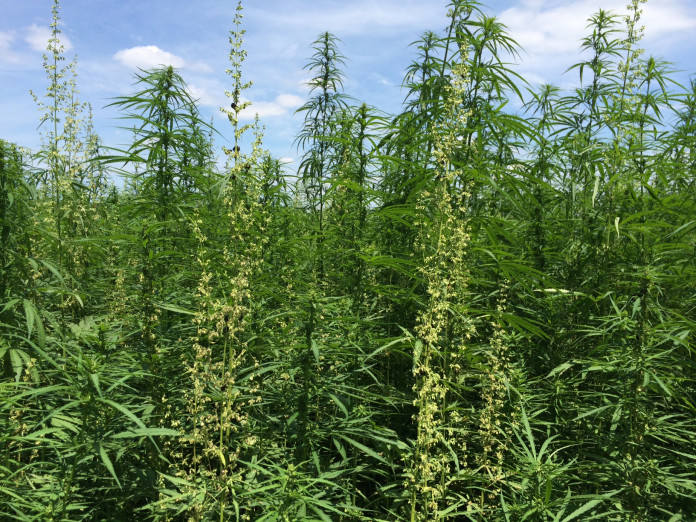
KUTZTOWN, Pa. — Rodale Institute, the nation’s leading organic farming research institution, has started a new industrial hemp research project focused on examining the crop’s role in soil health and regenerative organic agriculture.
The Pennsylvania Department of Agriculture Industrial Hemp Pilot Project granted 16 permits for research — Rodale Institute was one of the permit recipients.
It is the first time in 80 years that hemp will be grown legally in Pennsylvania.
Hemp history
Industrial hemp, a versatile plant grown for its fiber, seed or oil, was a valuable cash crop and a major industry in Pennsylvania for more than 260 years.
Due to its close relationship to the marijuana plant, hemp production was included in a 1933 law banning marijuana and was later named a Schedule 1 drug by the Controlled Substances Act of 1970.
However, changes made to the 2014 farm bill now allow for hemp to be grown for research purposes by departments of agriculture or institutions of higher education.
Funding
Rodale Institute’s multi-year hemp research project is being partially funded by a contribution of $100,000 from Dr. Bronner’s. The overall cost of the project is projected at $75,000-100,000 per year.
The Rodale Institute’s research on hemp will reveal important data about the crop’s role in the sustainable agriculture systems, providing evidence that hemp should be legalized said David Bronner, CEO of Dr. Bronner’s.
An additional $5,000 pledge of support was made by Nutiva’s CEO and founder John Roulac.
Research
Rodale Institute is conducting a four-year research project focusing on utilizing Industrial Hemp as a cash or cover crop to address weed pest issues and enhance soil health in organic agriculture.
They are conducting two field trials (a variety trial and weed suppression trial) and one greenhouse study.
The variety trial will test several varieties of hemp that have been bred to produce higher yields and higher quality of fiber and/or seeds.
This trial focuses on finding which types of hemp will grow best in a Mid-Atlantic climate and produce the most amount of fiber.
The Weed Suppression Trial will use hemp as a rotational crop in an organic system.
The main weed pressure in this study comes from yellow foxtail and red root pigweed.
Hemp fits well into a diverse organic crop rotation and its high biomass and canopy production has the potential to shade out weeds resulting in lower weed seed germination and growth.
This trial will analyze how farmers can best compete against weeds by utilizing a crop rather than tillage.
Tillage can destroy microbial communities in the soil environment and can result in a loss of organic matter.
For more information and updates about the research, visit RodaleInstitute.org/industrialhemp.









